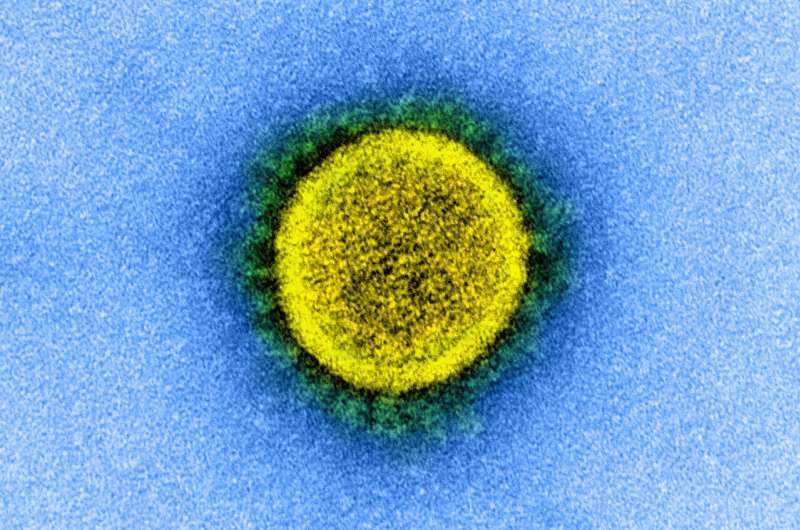SARS-CoV-2 (shown here in an electron microscopy image). Credit: National Institute of Allergy and Infectious Diseases, NIH
SARS-CoV-2, the virus that causes COVID-19, blocks the processes of innate immune activation that normally direct the production and/or signaling of type I interferon (IFN-I) by the infected cell and tissues. IFN-I is a key component of host innate immunity that is responsible for eliminating the virus at the early stage of infection, as summarized in a recent review article in Journal of Interferon & Cytokine Research (JICR). By suppressing innate immunity, the virus replicates and spreads in the body unchecked, leading to the disease known as COVID-19.
"SARS-CoV-2 utilizes various approaches to evade host IFN-I response, including suppression of IFN-I production and IFN-I signaling," state Hongjie Xia and Pei-Yong Shi, University of Texas Medical Branch at Galveston. "Viruses defective in antagonizing IFN-I response, in combination with replication-defective mutations, could potentially be developed as live attenuated vaccine candidates."
"Targeting innate immunity is highly attractive for therapeutic and vaccine strategies aimed at controlling SARS-CoV-2 infection and protecting against COVID-19. By revealing how the virus blocks innate immune programs we can then build approaches to restore these processes and enhance antiviral immunity," says Journal of Interferon & Cytokine Research Editor-in-Chief Michael Gale Jr., Department of Immunology and Center for Innate Immunity and Immune Disease, University of Washington.
Other COVID-related articles in this issue of Journal of Interferon & Cytokine Research include a review by Benjamin Liu and Harry Hill on the role of host immune and inflammatory responses in COVID-19 cases with underlying primary immunodeficiency. Primary immunodeficiency patients are highly vulnerable to virus infections including SARS-CoV-2. The authors conclude that routine intravenous immunoglobulin therapy may provide some protective effects to patients with primary immunodeficiency.
Ricardo Pereda and coauthors explore the therapeutic effectiveness of interferon alpha 2b treatment for COVID-19 patient recovery. They showed that interferon treatment decreases the likelihood of intensive care stay and increases patient survival after severe or critical disease.
More information: Hongjie Xia et al, Antagonism of Type I Interferon by Severe Acute Respiratory Syndrome Coronavirus 2, Journal of Interferon & Cytokine Research (2020). DOI: 10.1089/jir.2020.0214
Provided by Mary Ann Liebert, Inc
























